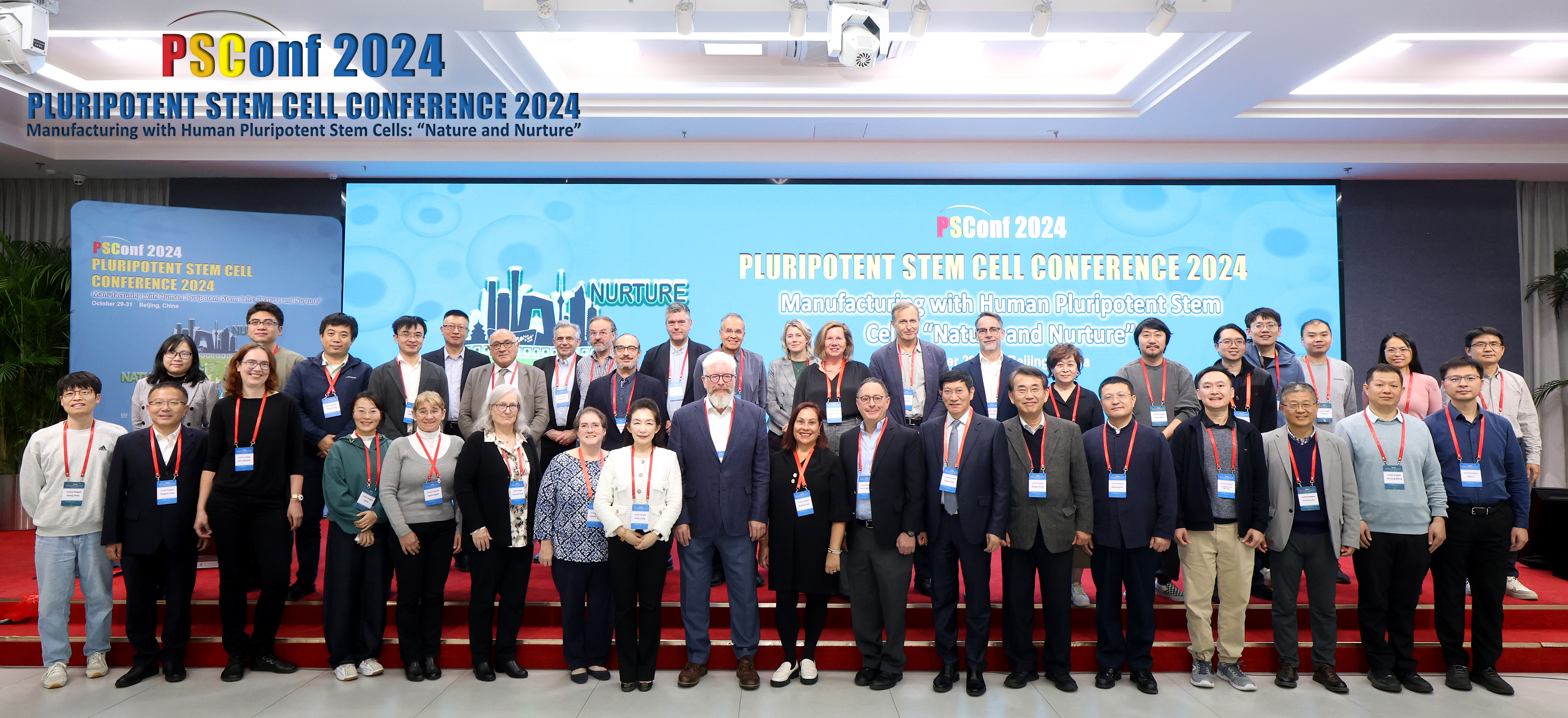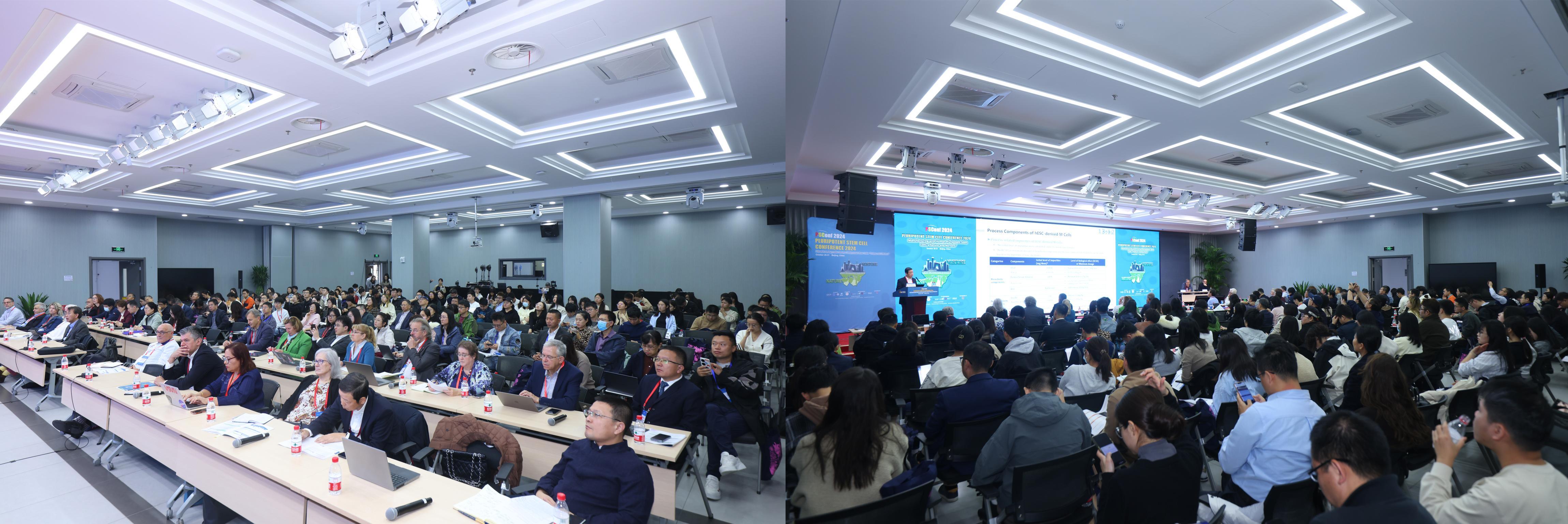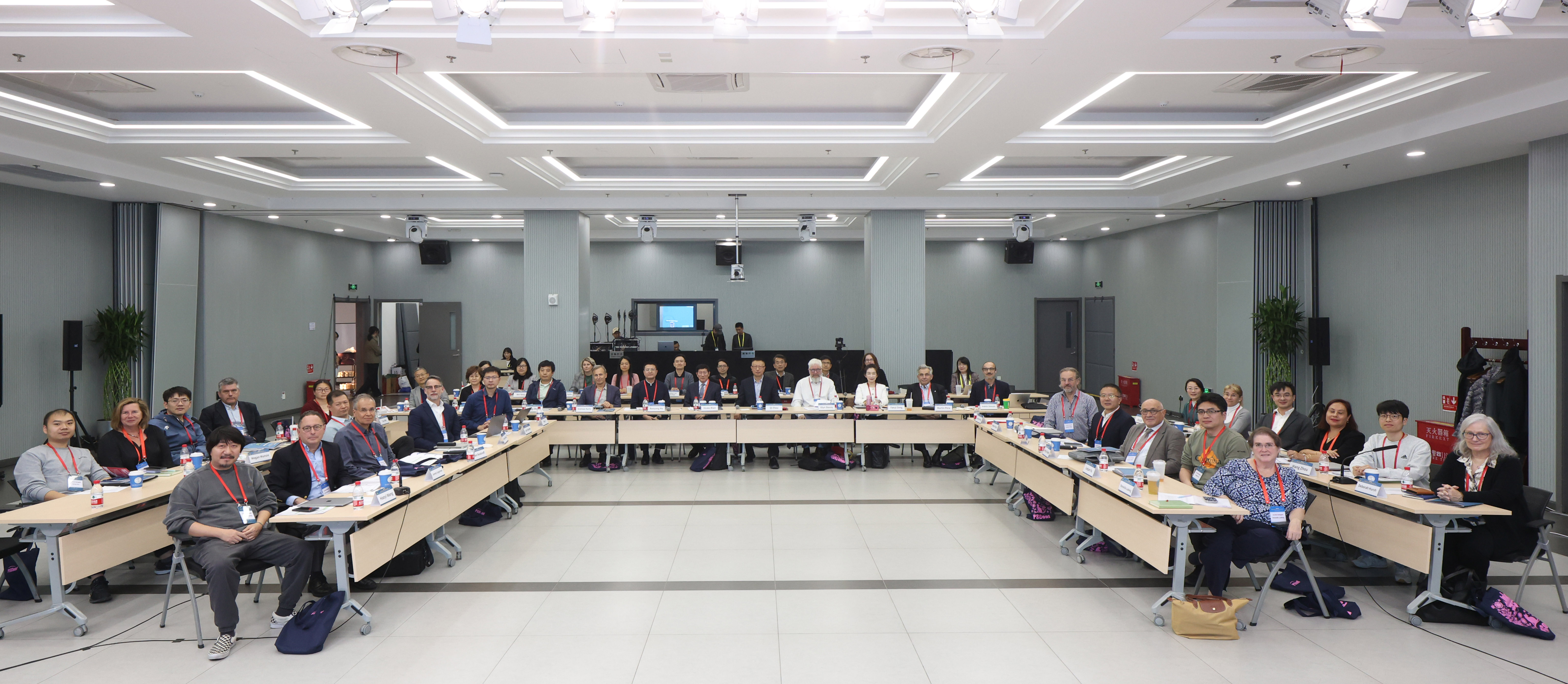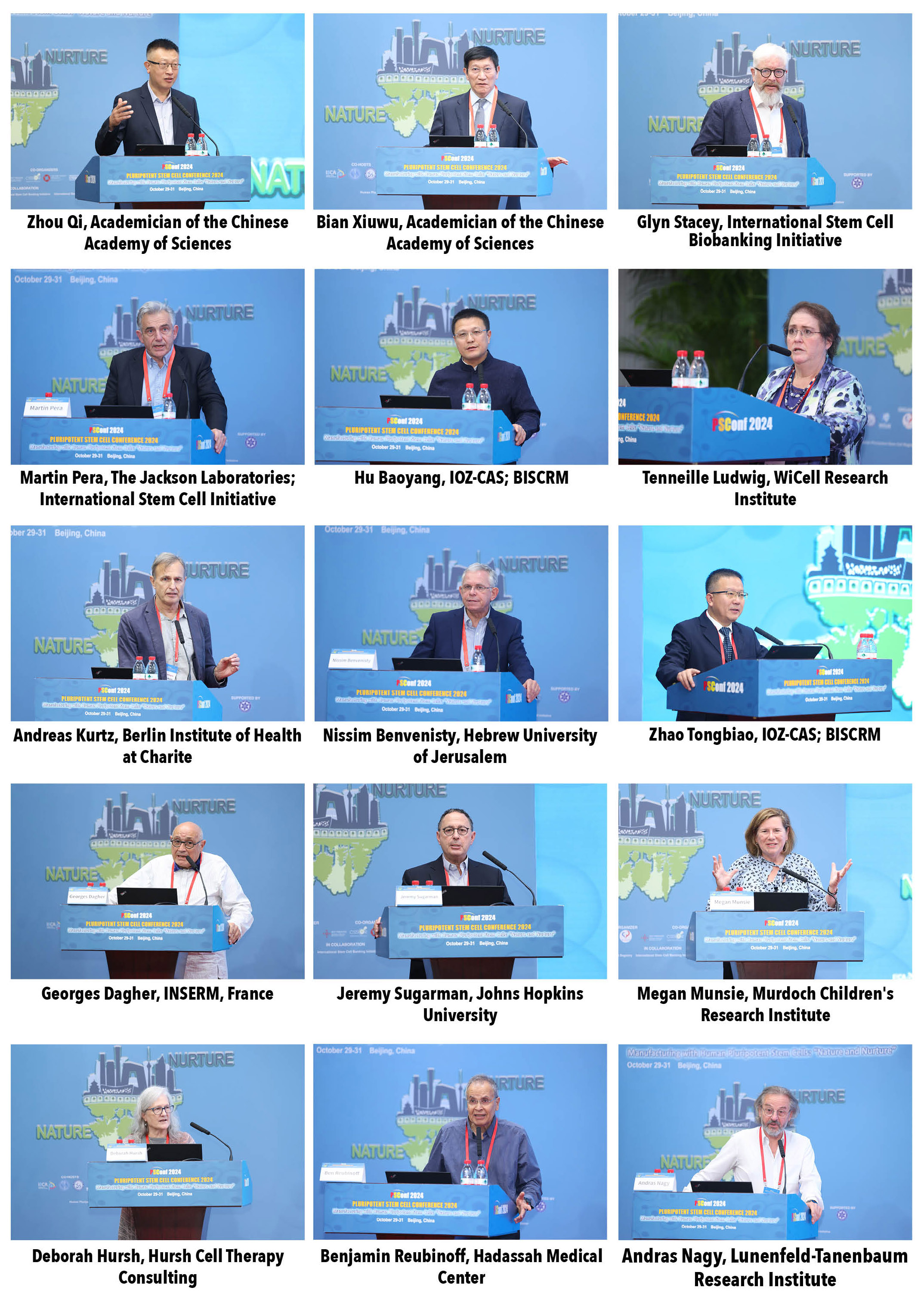
Date:2025-01-06 [close]

From October 29th to 31st, 2024, the Pluripotent Stem Cell Conference 2024 (PSConf 2024) was successfully held in Beijing. The theme of the conference was “Manufacturing with Human Pluripotent Stem Cells: Nature and Nurture”.

Over 30 distinguished experts and scholars from academia, industry, drug regulation, ethics, and standards development, representing 13 countries and regions including China, United States, Canada, United Kingdom, Germany, France, Australia, Japan, Korea, Singapore, and Israel, attended the conference as speakers. They addressed five key topics: stem cell drug safety, stem cell manufacturing, policies and regulations for stem cell therapy, stem cell ethics governance, and stem cell standards. Engaging in discussions with over 300 representatives from related fields both domestically and internationally, they proposed solutions to the challenges in stem cell drug development.

On the first day of the conference, a closed-door meeting was held with representatives from international stem cell organization and the International Stem Cell Alliance (ISCA) partners. Prof Hu Baoyang presented the research and translational progess of Beijing Institute for Stem Cell and Regenerative Medicine (BISCRM) to the attending experts. Prof Li Wei from the Institute of Zoology, Chinese Academy of Sciences (IOZ-CAS) introduced the research directions and recent achievements of the newly integrated Key Laboratory of Organ Regeneration and Reconstruction. Prof Gu Qi from IOZ-CAS discussed the future layout of the Human Organ Physiopathology Emulation System (HOPE) in terms of resource platform sharing and the incubation of international large scientific projects. Academician Bian Xiuwu reviewed the latest work progress of the Chinese Society for Stem Cell Research (CSSCR) and Chinese Alliance of Stem Cell and Regenerative Medicine (CASCRM). Prof Glyn Stacey, founding director of the International Stem Cell Biobanking Initiative (ISCBI), Prof Andreas Kurtz, head of the Human Pluripotent Stem Cell Registry (hPSCreg) and Prof Martin Pera, head of the International Stem Cell Initiative (ISCI), each introduced the past year's activities and progress on behalf of their respective international organizations. For the first time, Dr Jack Mosher, scientific advisor of the International Society for Stem Cell Research (ISSCR), participated in the meeting and introduced the organizational structure and annual meeting arrangements of the ISSCR.

At both the opening and closing ceremonies, Hu Baoyang, Executive Director of the Beijing Stem Cell and Regenerative Medicine Research Institute, delivered speeches on behalf of the organizers. He reflected on the successful hosting of the previous three PSConfs and provided insightful recommendations on the conference theme and future directions. He emphasized that PSConf should continue to uphold the principle of "Facing Challenges Together, Sharing Responsibilities" on a global scale. This involves addressing concerns from international regulatory bodies regarding ethical issues and the quality of cell products. These concerns should be translated into actionable goals and tasks, which should then be assigned to specialized teams focusing on standards, product safety research, and production. These teams are expected to develop detailed task lists and work plans to systematically and efficiently advance solutions.
Over the course of the two-day General Assembly, distinguished speakers from around the globe delivered insightful presentations and shared valuable perspectives at various stages of the conference. Among them were Prof Martin Pera from the Jackson Laboratory in the United States; Dr Tenneille Ludwig, Director of the WiCell Stem Cell Bank in the United States; Dr Deborah Hursh, former Senior Researcher at the FDA's Center for Biologics Evaluation and Research; Prof Andras Nagy from the Lunenfeld-Tanenbaum Research Institute in Canada; Prof Megan Munsie from the Murdoch Children's Research Institute in Australia; Prof Nissim Benvenisty from the Hebrew University of Israel; Prof Georges Dager from the French National Institute of Health and Medical Research; Prof Benjamin Reubinoff from Hadassah University Medical Center in Israel; and Prof Jeremy Sugarman from Johns Hopkins University in the United States. The speakers unanimously praised the high quality of the conference and acknowledged China's significant contributions to international scientific collaboration and governance. Their presentations not only enriched the discussions but also highlighted the importance of global cooperation in advancing scientific research.

Prof Martin Pera remarked, "Long before coming to China, I had read in scientific literature about the remarkable changes taking place here. However, what I have witnessed since my arrival has been even more astounding—whether it’s the advanced state of research institutions, the substantial investments in infrastructure, or the exceptional quality of researchers, particularly the impressive performance of young scientists! I would especially like to thank Zhou Qi and Glyn for their tireless efforts in fostering collaboration between China, the United States, Europe, and other regions around the world."
Dr Jack Mosher expressed that participating in PSConf was an extraordinary opportunity. Despite the current challenges in Sino-American exchanges, the experience of engaging in face-to-face communication and dialogue here has far exceeded expectations. He expressed strong optimism about the future collaboration between PSConf and ISSCR and eagerly anticipates further deepening cooperation and exchanges between the two organizations.
As the conference drew to a successful close, the organizers announced that the next annual meeting will take place from June 7 to 9, 2025, in Huairou, Beijing, and showcased a promotional video specifically created for the upcoming event. Participating organizations and representatives are committed to leveraging the PSConf platform to foster international collaboration in stem cell research and its translation into practical applications. With a long-term vision and a focus on pragmatic cooperation, they aim to drive global advancements in health and make even greater contributions to the progress of global health initiatives.
Tel: +86-10-64805072
fax: +86-10-64807316
e-mail: iscn@ioz.ac.cn
addr. : A3 Datun Road, Chaoyang District, Beijing, P.R.China 100101
 京公网安备 11010502043640号
京公网安备 11010502043640号